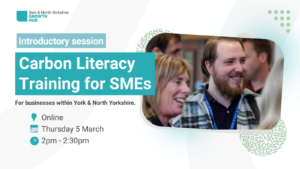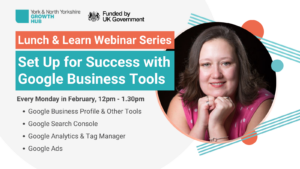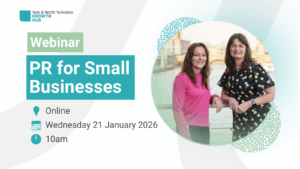
How to perform a sustainability audit
A sustainability audit assesses your business’s environmental and social impacts, ensuring compliance with relevant regulations, and identifying areas where you can make effective change to achieve your sustainability objectives. Here, we guide you through the main steps involved in performing a sustainability audit.

Establish your objectives and plan your approach.
The first step in conducting a sustainability audit is to define your objectives. What specific aspects of your business’s operations do you want to assess? Common areas to consider include energy consumption, waste management, supply chain ethics, staff engagement and training, and community engagement.
Forming an audit team will be helpful, so you have a variety of voices and experiences inputting to the work. Your team should include, where possible, individuals with some knowledge, or an interest in developing knowledge, of sustainability, compliance, and relevant regulations.
Make use of existing guidance and templates to help get you started. We have a Net Zero Toolkit for Businesses that can help you identify potential areas for change and action. Lloyds Bank have also produced a helpful guide, and The Carbon Trust have a guide specifically on performing a carbon audit.
Gather the data
Collect data on your business’ operations and practices related to your audit objectives. This may include energy bills, waste disposal records, supplier information, and voluntary or community activity. The Government provides guidelines on carbon reporting and reducing energy consumption, which can be invaluable during this stage.
Identify areas for improvement
Use the audit findings to identify areas where your business can improve its sustainability practices. This might involve setting specific targets for reducing carbon emissions, or adopting greener supply chain practices or a local-first procurement policy.
Develop an action plan
Create a detailed action plan to address the issues and gaps you’ve identified. Your plan should outline specific actions, responsible parties, timelines, and measurable targets. Align these actions with your own objectives, as well as any regulations and standards you need to meet. Then you can begin implementing your action plan and monitoring your progress. The British Business Bank has further guidance on creating an action plan.
Conducting a sustainability audit for your business is a proactive step in demonstrating your commitment to responsible business practices and aligning with relevant regulations. By adhering to sustainability regulations and consistently improving your practices, your business can contribute to a more sustainable and ethical future.

Learn more
Find out how to create a sustainability plan
Read our guide to the circular economy for tips on improving practice and processes
Articles
New business fund tackles biggest barrier to growth
The Mayor of York and North Yorkshire has invited businesses to apply for a new programme to help overcome one of the biggest barriers to growth. Get Funded, part of the Mayor’s Business Innovation Fund and backed by £200,000 in funding, launched today and will run for the next two years until December 2027.
Kick Off In Business: Fully Funded Opportunity
Online business start-up & self-employment courses funded by York and North Yorkshire Combined Authority’s Adult Skills Fund, providing straightforward, practical information and guidance for anyone who is in the process of setting up a business or simply exploring the idea.
Carbon Literacy Training for SMEs
Curious what Carbon Literacy could do for your organisation? You’ll meet our friendly Carbon Literacy Facilitator, Ali Fisher, and get a taste of how this practical training can help your business cut costs, attract and retain great people, and stand out in bids, tenders and investment conversations.
Resources
Communications for Small Businesses Series: Webinar Recordings
This webinar series will guide you through the steps needed to embrace communications for your business, in an authentic and impactful way.
Webinar Series: Set Up for Success with Google Business Tools
This series explores the free tools available from Google to help small businesses increase their online presence. Plus, you’ll learn how to leverage Google’s paid advertising platform for scalable growth without feeling like you are just wasting money. Participants will leave feeling confident to start using Google Tools to Improve their visibility, generate leads and make more sales online.
Webinar Recording: PR for Small Businesses
Want to get your business featured in newspapers and magazines in 2026? In this webinar, Jo and Linda explain why you should be prioritising PR – including reaching a new audience (outside your social media bubble), building trust and credibility, and boosting your sales and SEO.






